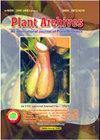EFFECT OF PROCESSING ON NUTRACEUTICAL PROFILE AND AMINO ACID CONTENT ON PUMPKIN (CUCURBITA PEPO L.) SEEDS
Q4 Agricultural and Biological Sciences
引用次数: 0
Abstract
A well-known, nutrient-rich, multipurpose food, pumpkin has recently provided scientists with new avenues for research. In addition to proteins, carbohydrates, polyunsaturated fatty acids, monounsaturated fatty acids, amino acids, minerals, and a variety of phytochemicals, the pumpkin fruit, comprising the flesh, seed, and peel, is a rich source of primary and secondary metabolites. Raw pumpkin seeds may have a compromised flavor, color, as well as digestibility. Therefore, the objective of the present study is to assess the influence of roasting (160°C for 10 min) and germination on the nutritional profile, mineral content and amino acid content of pumpkin seeds. Our results indicated that fibre and protein content was increased in the processing methods i.e., roasting and germination. In the meantime, the content of minerals changed after roasting and germination and revealed significant increase at (p<0.05) in potassium and phosphorus and after germination calcium, magnesium and iron were also increased. Results obtained from processed pumpkin seeds further revealed that the essential and non-essential amino-acid content of germinated pumpkin seeds were increased when compared to raw and roasted pumpkin seeds. Processed pumpkin seeds had significant mineral content and excellent amino acid content. It can be concluded that subjecting pumpkin seeds to various processing methods enhanced its nutritional value and opened up potential uses for them in the food sector.加工对南瓜种子营养成分及氨基酸含量的影响
南瓜是一种众所周知的营养丰富的多用途食品,最近为科学家提供了新的研究途径。除了蛋白质、碳水化合物、多不饱和脂肪酸、单不饱和脂肪酸类、氨基酸、矿物质和各种植物化学物质外,南瓜果实包括果肉、种子和果皮,也是初级和次级代谢产物的丰富来源。生南瓜籽的味道、颜色和消化率可能会受到影响。因此,本研究的目的是评估烘烤(160°C,10分钟)和发芽对南瓜种子营养成分、矿物质含量和氨基酸含量的影响。我们的结果表明,在加工方法中,即烘焙和发芽,纤维和蛋白质含量增加。同时,烘烤和发芽后矿物质含量发生变化,钾和磷含量显著增加(p<0.05),发芽后钙、镁和铁含量也增加。从加工南瓜籽中获得的结果进一步表明,与生南瓜籽和烤南瓜籽相比,发芽南瓜籽的必需氨基酸和非必需氨基酸含量增加。加工南瓜籽具有显著的矿物质含量和优良的氨基酸含量。可以得出结论,对南瓜籽进行各种加工方法可以提高其营养价值,并为其在食品部门开辟潜在用途。
本文章由计算机程序翻译,如有差异,请以英文原文为准。
求助全文
约1分钟内获得全文
求助全文
来源期刊

Plant Archives
Agricultural and Biological Sciences-Plant Science
自引率
0.00%
发文量
70
期刊介绍:
Information not localized
 求助内容:
求助内容: 应助结果提醒方式:
应助结果提醒方式:


